Valve replacement is a cardiac surgical procedure to address dysfunction or pathology of heart valves. When heart valves become compromised due to conditions like stenosis (narrowing) or regurgitation (insufficient closure, leading to leakage), valve replacement becomes necessary.
Two primary modalities of heart valve replacement exist:
Valve replacement surgery, whether for the aortic, mitral, tricuspid, or pulmonary valve, is typically performed as follows:
Valve Replacement cost in India for Indian Patients is between Rs.244200 to Rs.325600. Cost for International patients is between USD 4950 to USD 6050.
Patient has to stay in the hospital for 8 days and outside the hospital for 15 days. The total cost of the treatment depends on the diagnosis and facilities opted by the patient.The cost of Valve Replacement includes the following:
The overall cost of the procedure also varies based on the patient's condition and preferences. Some of these factors are:
Listing approximate price of Valve Replacement and some related procedures. The prices may change depending upon the centers and condition of the patient.
| Treatment name | Cost range |
|---|---|
| Valve Replacement | Rs.244200 to Rs.325600 |
| Mitral Valve Replacement | Rs.275280 to Rs.367040 |
| Aortic Valve replacement - Mechanical Valve | Rs.355200 to Rs.473600 |
| Aortic Valve replacement - Tissue Valve | Rs.253080 to Rs.337440 |
| Mitral Valve replacement - Mechanical Valve | Rs.386280 to Rs.515040 |
| Mitral Valve replacement - Tissue Valve | Rs.288600 to Rs.384800 |
| Heart Double Valve Replacement | Rs.355200 to Rs.473600 |
| Aortic Valve Repair | Rs.165000 to Rs.220000 |
| Mitral Valve Repair | Rs.88800 to Rs.118400 |
| Balloon Valvuloplasty - Aortic | Rs.177600 to Rs.236800 |
| Valve Repair Replacement | Rs.310800 to Rs.414400 |
Prior to the surgery, a proper physical examination and tests such as chest X-ray, electrocardiogram (ECG), blood tests, echocardiogram, and coronary angiogram are done. All the tests are covered in the package price.
There are several replacement valves available such as tissue valves including donated human aortic valves or animal valves, and mechanical valves consist of plastic, metal, or any other artificial material. Though, certain valve diseases such as mitral valve regurgitation or aortic valve stenosis can be utilized with non-surgical methods. Mechanical valves last longer than tissue valves, hence are more expensive than conventional valves.
All the expenses and medications when you’re at the hospital are included in the medical package during the patient’s stay in the hospital however, these benefits are not covered once the patient is discharged.
The price varies across the cities. Tier 1 Cities are usualy more expencive thane tier 2 cities. The price for Valve Replacement in different cities in India is approximately in the range of:
For patients planning to travel abroad it is useful to know the price in destinations popular with medical travellers. The price for Valve Replacement in different countries is approximately:
Listing popular specialists:
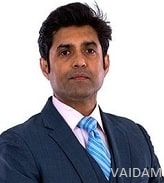
Director, 22 years of experience

Cardio Thoracic Surgeon, Heart Bypass Surgery/ CABG, Valve Repair and Replacement Surgery, Paediatric Cardiac Surgery, Organ Transplant, Robotic Cardiac Surgery
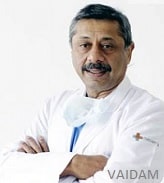
Chairman, 40 years of experience

Cardiology, Cardiovascular and Cardiothoracic surgery
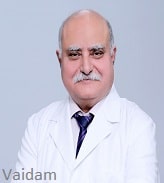
Chairman, 36 years of experience

Cardiovascular & Cardiothoracic Surgery, Off pump Coronary artery surgery (OPCAB), Off pump Total Arterial Revascularization, Paediatric cardiac surgery, Mitral Valve Repair, Aortic Root Replacement
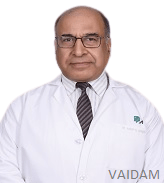
Consultant, 26 years of experience

Cardiology & Cardiovascular Surgery Adult Cardio thoracic Surgery, Diffuse CAD, M V Repair, Vascular Surgery
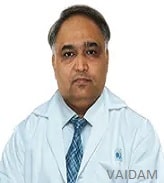
Senior Consultant, 16 years of experience

Coronary Artery Bypass Surgery And Heart Lung Transplant Surgery,Ecmo,Assist Device And Heart Failure Surgery
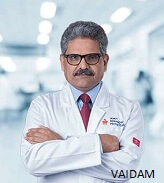
Director, 32 years of experience

Cardio thoracic & cardiovascular Surgery, Minimally invasive cardiac surgery, Robotic surgery, Beating heart coronary artery bypass, Aortic surgery, Redo cardiac surgery
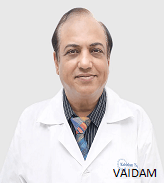
Head of Department, 27 years of experience

CABG, Offpump CABG, Midcab, Redob CABG Mini Invasive & Cosmetic Surgery (CABG, Congenital Heart Defects, Mitral, Aortic, Tricuspid Valve Repair / Replacement, Aortic Root Enlargement, Devised A New Technique, All Types of Congenital Heart Surgery, Ross Procedure, RV To PA Conduits, Fontan Procedure, Cardiothoracic Surgery, Ebstein Anomaly Repair, Devised A New Technique, Aneurysm Surgery, Endovascular and Hybrid surgery, Carotid Artery Surgery, All Types Peripheral Vascular Surgery, All Types of Lung Surgery, Heart and Lung Transplant
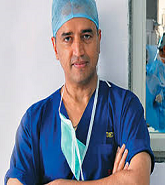
Chairman, 34 years of experience

Cardiothoracic Surgery, Pediatric Cardiac Surgery, Cardiovascular Surgery
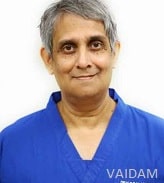
Director, 30 years of experience

End-stage heart failure management (Heart Transplant & VAD implant) Pediatric Cardiac Surgery Lung Transplant
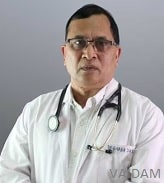
Chief, 36 years of experience

Aortic Valve Surgery, Transcatheter Aortic Valve, Heart Valve Surgery, Implantation TAVI, Heart Valve Replacement, Corornary Artery Bypass Grafting, Heart Transplant
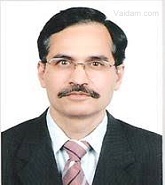
Director, 27 years of experience

Minimally Invasive Cardiac Surgery, Off pump coronary artery bypass surgery, Surgery of ascending aortic aneurysms and dissections, Valve repair and replacement, Carotid endarterectomy, CABG in patients with poor ventricular function, Major Vascular surgery, Surgery for heart failure including heart transplantation and ventricular assist devices
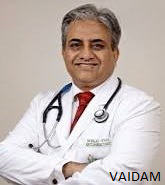
Senior Consultant, 18 years of experience

Cardiologists Cardiovascular Specialists Cardiac Surgeons Cardio/Thoracic Surgeons Cardiovascular Surgeons
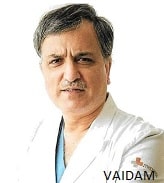
Chairman, 37 years of experience

Pediatric cardiac surgery, Valve repairs, Peripheral Vascular Surgery
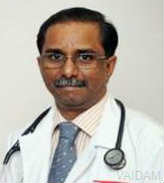
Consultant, 22 years of experience

Aortic Anuerysm Surgery / Endovascular Repair, Vascular Surgery, Mitral/Heart Valve Replacement, Coronary Artery Bypass Grafting, Patent Ductus Arteriosus (PDA)
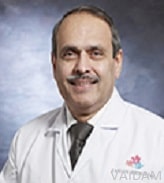
Director, 39 years of experience

Cardiac Catheterisation, Mitral/Heart Valve Replacement, Vascular Surgery, Invasive Cardiac, Cardiac Pacing, Intra - Arterial Thrombolysis, Balloon Mitral Valvuloplasty, Radial Approach Angiography, Patent Ductus Artriosus Device Closure, Mitral/Heart Valve Replacement, Invasive Cardiac, Cardiac Pacing
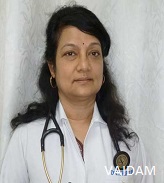
Consultant, 44 years of experience

Peripheral Vascular Disease Patent Ductus Artriosus Device Closure Coronary Angiogram Radial Approach Angiography Balloon Mitral Valvuloplasty Pacemaker Implantation Cardiac Catheterisation Acute Aortic Dissection Primary Angioplasty ASD / VSD Device Closure Implantable Cardioverter-Defibrillators (Icds) Cardioversion Carotid Angioplasty And Stenting Peripheral Angioplasty Coronary Angioplasty / Bypass Surgery
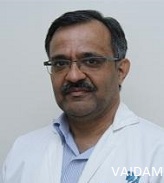
Consultant, 30 years of experience

Off Pump CABG Endovascular Surgery mitral valve repair Minimally Invasive Cardiac Surgery Redo Cardiac Surgery Aortic Anuerysm Surgery / Endovascular Repair Vascular Surgery Mitral/Heart Valve Replacement Coronary Artery Bypass Grafting PCI (Percutaneous Coronary Interventions) Patent Ductus Arteriosus (PDA) Tetralogy of Fallot (TOF) Dextro-Transposition of the Great Arteries (DTGA) Angiogram Open Heart Surgery
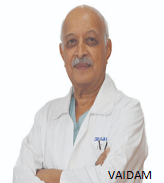
Consultant, 40 years of experience

Peripheral Angioplasty, Balloon Mitral Valvuloplasty, Intra - Arterial Thrombolysis, Pacemaker Implantation, Mitral/Heart Valve Replacement, Coronary Angioplasty / Bypass Surgery, Invasive Cardiac, Cardiac Pacing, Cardio-Thoracic Surgery, Radial Approach Angiography
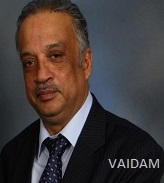
Chairman, 25 years of experience

Off-Pump CABG Without the support of Heart-Lung machine, More than 90% cases. Bloodless Heart surgery. Total Arterial Bypass Grafting Surgery – Off-pump (LIMA RIMA Y). CABG with Endarterectomy. Combined Surgery (CABG + Valve Surgery). Aortic Surgery (Aortic Aneurysm, Aortic Dissection). REDO Surgery (2nd time CABG, Valve Replacement Surgery). Minimally Invasive Cardiac Surgery. Surgery for Heart Failure. Surgery for Adult Congenital Heart Disease. Ventricular Assist Devices. ECMO.
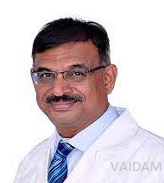
Consultant, 40 years of experience

Bypass Surgery ECMO Cardioversion Aortic Valve Surgery Aorta Surgery Aldosterone inhibitors Blood vessel dilators Left ventricular assist device LVAD Heart valve surgery Infarct exclusion surgery Minimally Invasive Coronary Artery Surgery Thoracic Surgery Keyhole Angioplasty
Our Services for Valve Replacement in India
Transparent - Professional - Without Hassles






NABH Certified Healthcare Discovery Platform
Vaidam is NABH certified healthcare discovery platform that will connect you to top-notch medical experts, hospitals, wellness options, and trusted travel partners to help identify and make the right healthcare choices.

Researched & Personalized Treatment Plan - Under One Roof
You can search for the best hospitals, read about them, view photographs of the facilities at the hospitals and the places at which the hospitals are located, and check the cost of treatment.

Quality Treatment Within Your Budget
As soon as you post an enquiry, the patient relation team will collect details from you, share them with the doctors and hospitals on Vaidam's panel, and get a personalized treatment plan. We research to get quality treatment within your budget.

Treatment to Travel
Vaidam concierge assists patients, to get medical Visa, the best airline fares and arrangements for your stay. Our concierge also helps you with daily travel, language, and food concerns. Vaidam does everything to be your perfect host. All of Vaidam’s services are free of cost to patients.

International Reach
Vaidam Health has network in 15+ countries, which includes India, Turkey, UAE, Germany, South Korea, Thailand, Malaysia, Spain.
Note: Vaidam Health does not provide medical advice, diagnosis or treatment. The services and information offered on www.vaidam.com are intended solely for informational purposes and cannot replace the professional consultation or treatment by a physician. Vaidam Health discourages copying, cloning of its webpages and its content and it will follow the legal procedures to protect its intellectual property